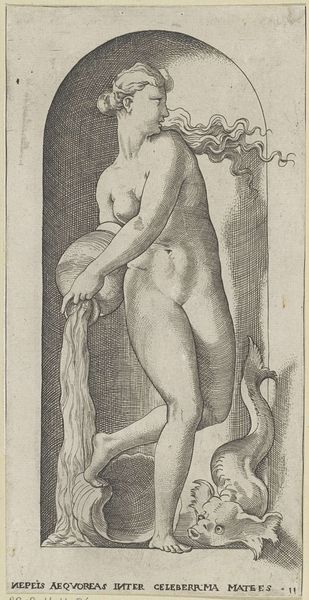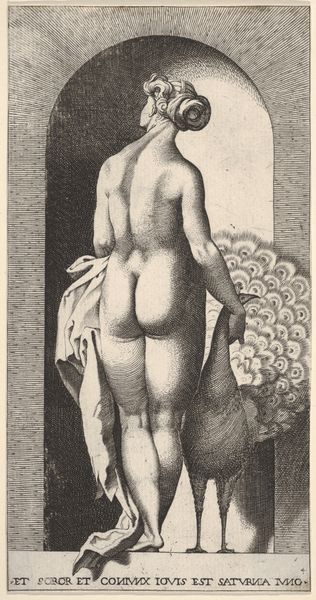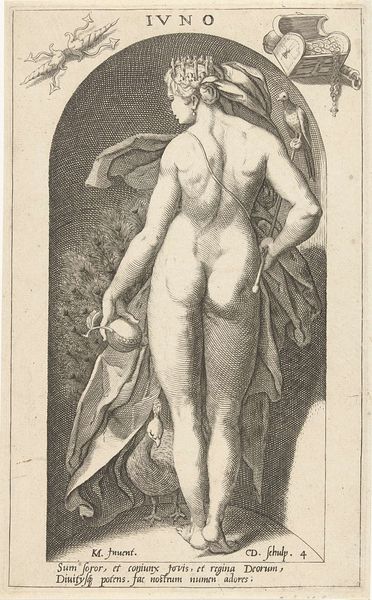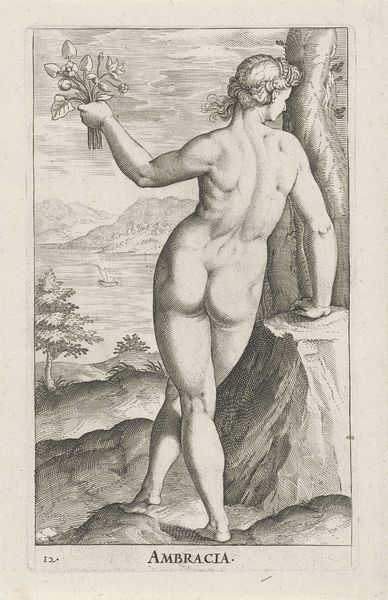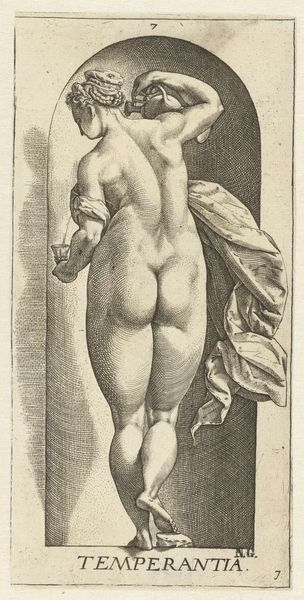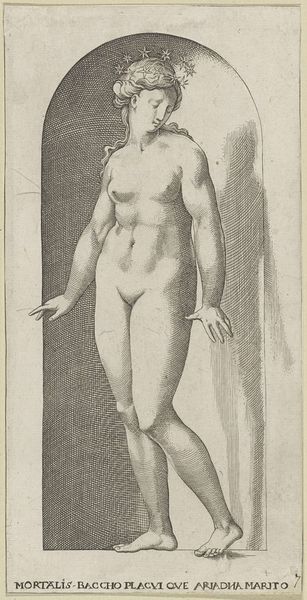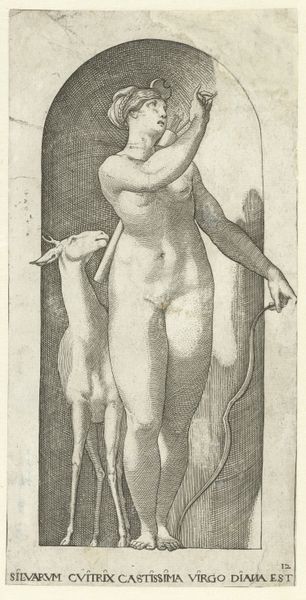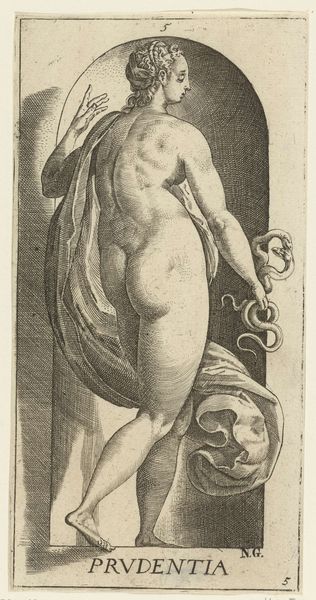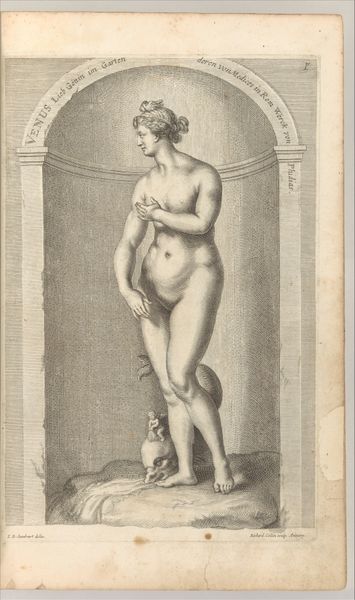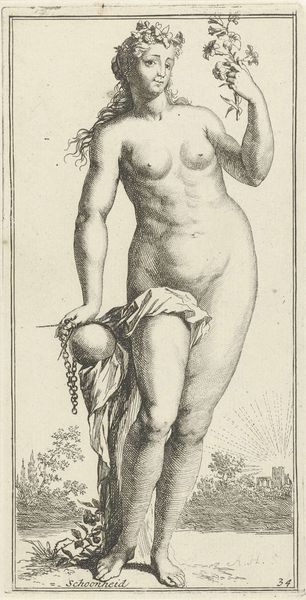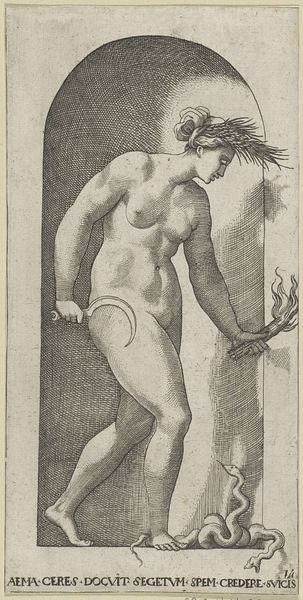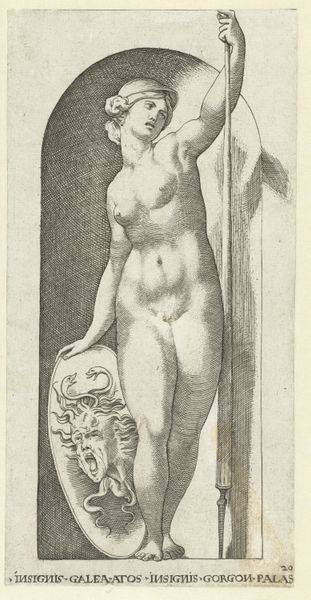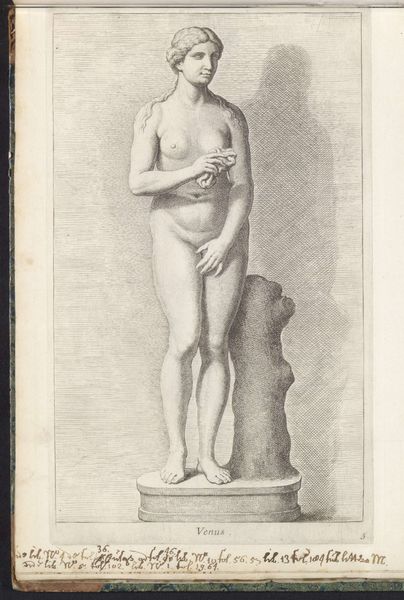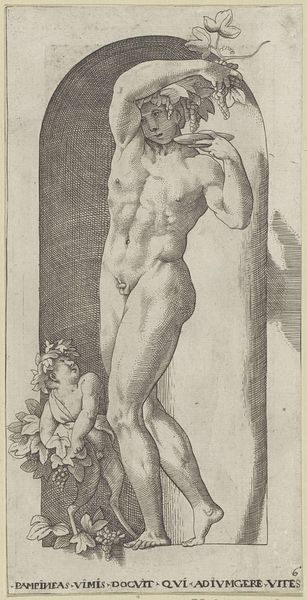
print, engraving
# print
#
old engraving style
#
figuration
#
northern-renaissance
#
nude
#
engraving
Dimensions: height 213 mm, width 108 mm
Copyright: Rijks Museum: Open Domain
Jacob Binck created this engraving of Juno, the Roman goddess of marriage, sometime in the 16th century. At the time, the circulation of prints allowed for the rapid dissemination of classical imagery, influencing societal values and artistic practices. Juno, seen from behind, stands nude save for a draped cloth, beside her symbolic peacock. The choice to depict her from this perspective offers an interesting lens through which to consider the objectification of women. During the Renaissance, the female nude was a complex subject, often justified through allegorical or mythological contexts, yet fraught with the male gaze. Binck’s Juno could be seen as both a celebration of the female form and a symbol of marital fidelity. The emotional impact of this piece resides in its delicate lines and the vulnerability of the goddess's exposed back. Binck’s "Juno" invites us to consider the historical roles and expectations placed upon women.
Comments
No comments
Be the first to comment and join the conversation on the ultimate creative platform.
